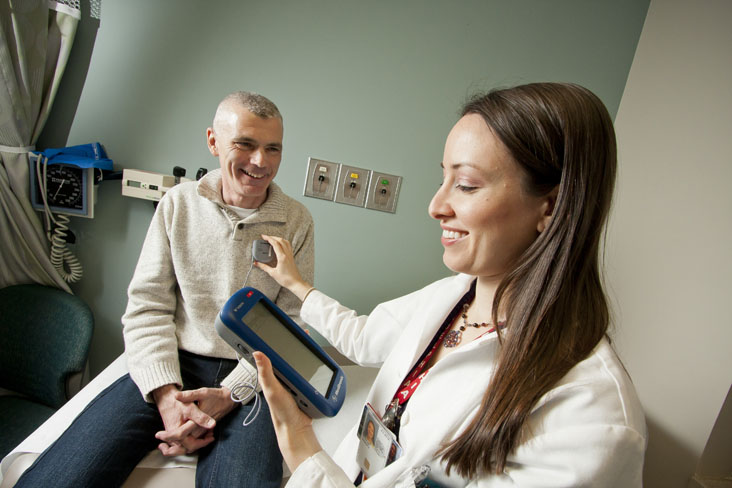IMPACT ON RURAL VETERANS' HEALTH
Increased Access to Care for Rural Veterans
For many years, the Office of Rural Health (ORH) has pursued a four-part mission: promote the health and well-being of rural Veterans, generate and diffuse knowledge regarding rural Veteran health, strengthen community health care infrastructure that serves rural Veterans, and inform policy that impacts rural Veteran care delivery. The Office focuses on a wide variety of programs to address rural Veterans’ unique health care challenges. Since 2012, ORH has funded $3.1 billion in projects and now uses two primary models to disseminate innovation across the Veterans Health Administration:
- Rural Mentored Implementations: Identification and system-wide implementation of innovative new models of care by ORH's Veterans Rural Health Resource Centers. Current practices in mentored implementation include HIV virtual teams, tele-rehabilitation for Veterans with multiple sclerosis, rural cardiac rehabilitation, suicide prevention, and more.
- Enterprise-Wide Initiatives: Establishment of 36+ nationwide rural programs that provide more health care options including transportation, telephone lifestyle coaching, telemental health, home based primary care, and more.
Fiscal year (FY) 2024 solutions include:
- Increased virtual access to providers: In FY 2024, ORH is providing $96 million in funding for clinical resource hubs, which provide primary, mental health, medical specialty, rehabilitation, and extended care in VA facilities or in Veterans’ homes via video or telephone. In FY 2023, 685,020 rural Veterans were served by ORH-funded telehealth programs.
- Increased rural workforce clinical skills: In FY 2024, ORH is providing $9 million in funding for workforce training and education to enable more local providers to deliver fundamental primary and specialty care services. In FY 2022, more than 27,000 employees completed ORH-funded training to support rural Veteran care.
- Increased transportation assistance: In FY 2024, ORH is providing $31 million in funding for transportation services to reduce the travel burden experienced by rural Veterans due to distance, geography, and lack of public transportation. More than 158,000 rural Veterans used ORH-funded transportation services in FY 2023.




















